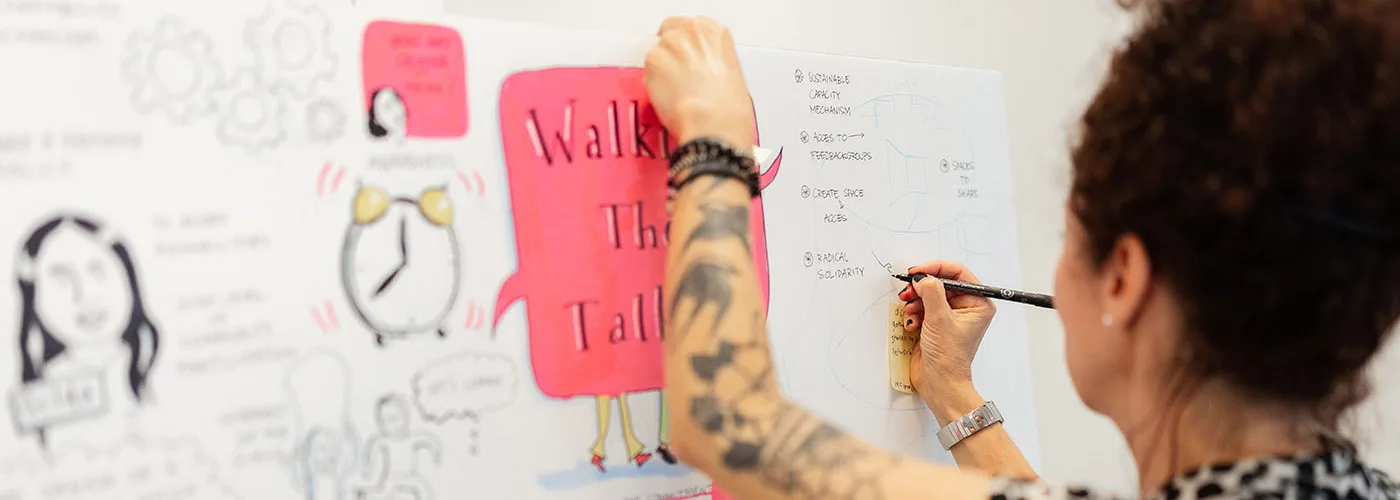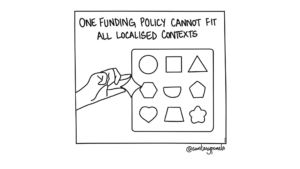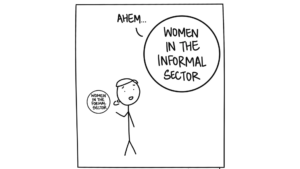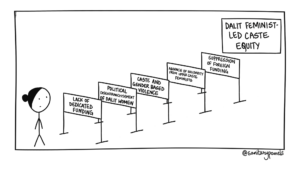Key information
Region: South Asia
Country: Bangladesh, India, Nepal, Pakistan and Sri Lanka
Researchers: Christina Dhanuja, Anju Singh and Debarati C.
Advocacy summary
The paper analyses the intersectionality within Dalit feminist movements in South Asia. The researchers call for funding and philanthropy which recognizes the multiple layers of oppression and understands intersecting hierarchies.it is particularly important to analyze caste-equity and use an anti-caste lens when allocating funds to indigenous feminist movements. The researchers recommend implementing collaborative funds, understanding caste based structures and investing in long-term, sustained social change. This paper brings in a different dimension as it looks at how community centered funding should consider the power dynamics within specific countries and communities rather than look at feminists in a specific country as homogenous. It can be used when conducting advocacy with funders focusing on developing contextually relevant and intersectional funding models.
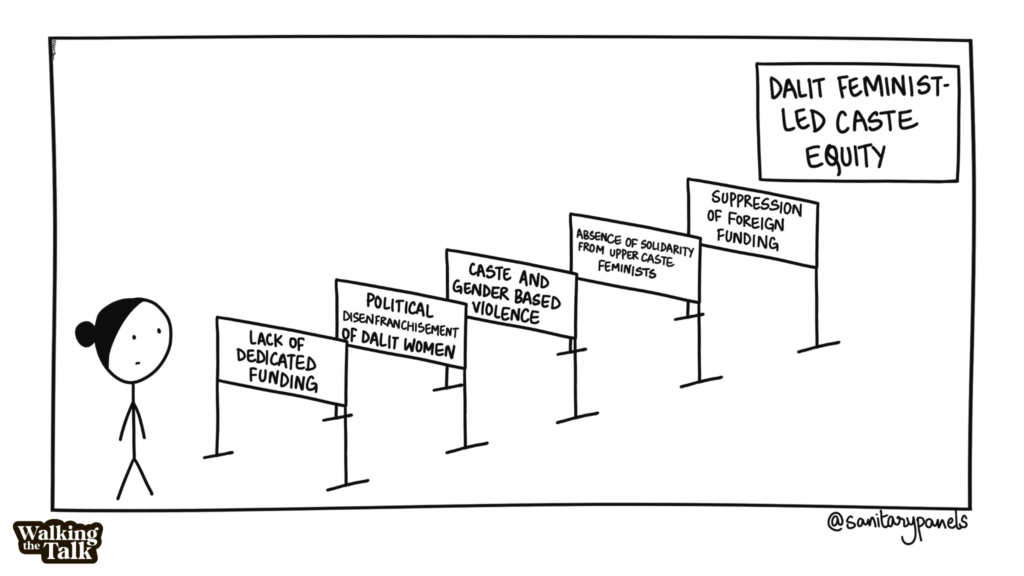
Recommendations
- Increase investments in long-term, sustained social change led by Dalit feminists in South Asia.
- Work actively to de-brahminise philanthropy, which warrants a deep and rigorous understanding of caste-based structures and anti-caste movements.
- Set up collaborative funds at global and regional levels to circumvent caste-based, language-related, and country-specific challenges.
Authors

Christina Dhanuja is a researcher by academic qualification, a strategy consultant by experience, and an external relations professional who has held multiple roles in India, China, Singapore, and the Netherlands, working with stakeholders in government, business, and development sectors. She is the convenor and founder member of the Global Campaign for Dalit Women, consulting with corporates, non-profits, faith-based institutions, and academia on leadership development, caste diversity, equity, and inclusion, as well as accountability frameworks. She is the co-founder of the Dalit History Month project and has published extensively on topics such as caste, gender, religion, sexuality, and mental health.

Anju Singh is a prominent Dalit feminist with over 14 years of experience advocating for the empowerment of young Dalit girls and women. She is a founder-member and secretary of the Global Campaign for Dalit Women and initiated the Ambedkarite Social Café, a safe space for youth that offers resources and support rooted in the principles of Dr. B.R. Ambedkar. Anju has led several significant initiatives during her decade-long tenure as a national leader at the All India Dalit Mahila Adhikar Manch and Dalit Women Fight, a self-led grassroots collective. Anju has also played a key role in organising the Dalit Women’s Self-Respect Marches. She has represented the rights of Dalit women on the global stage, including being the first Dalit woman leader at the 10th UN Forum on Minority Issues in Geneva.

Debarati Choudhury is a socio-legal researcher trained in gender studies, public policy, and governance. She has been working with Dalit-adivasi women-led grassroots organizations for half a decade towards systemic changes, to ensure safe, habitable working environments for women and girls belonging to oppressed castes and tribes. Her research lies at the intersection of social exclusion, othering, oppression and access to state institutions for oppressed caste
and religious minorities across South Asia. Her work as an ally encompasses capacity building and liaison with national and state-level governments and human rights commissions, while advocating for equitable social protection policies and affirmative legislation. She is currently a Research Fellow with the Global Campaign for Dalit Women.

